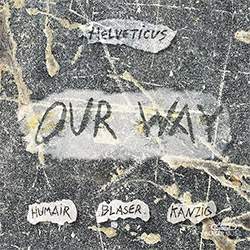
A trio of all-star European jazz performers from three generations — drummer Daniel Humair (85), bass player Heiri Kanzig (66) and trombonist Samuel Blaser (42) — in their second album after 2020's album 1291, for a mixture of original compositions and standards including Monk's "Jackie-ing" & "Bemsha Swing", Ellington's "Creole Love Song" & "Tiger Rag".
In Stock
Quantity in Basket: None
Log In to use our Wish List
Shipping Weight: 3.00 units
EU & UK Customers:
Discogs.com can handle your VAT payments
So please order through Discogs
Sample The Album:
Samuel Blaser-trombone
Daniel Humair-drums
Heiri Kanzig-bass
Click an artist name above to see in-stock items for that artist.
UPC: 0730706013454
Label: Blaser Music
Catalog ID: BM012CD
Squidco Product Code: 34457
Format: CD
Condition: New
Released: 2024
Country: Switzerland
Packaging: Cardboard Gatefold 3 Panels w/ booklet
Recorded at Studio 2 RSI, in Lugano-Besso, Switzerland, on September 26th and 27th, 2022, by Lara Persia.
"They could be grandfather, father and son: The drummer Daniel Humair, the bass player Heiri Kanzig and the trombone player Samuel Blaser are 85, 66 and 42 years old: but the three musicians meet on the same level - in an intriguing conversation which combines tradition and modernity, lyric and drama, intimacy and humour. All three are not only masters of their instruments but also band leaders and composers of renown. In their roles, but also as sidemen, they are much valued by the global jazz community and superbly well connected. "They could be grandfather, father and son: The drummer Daniel Humair, the bass player Heiri Kanzig and the trombone player Samuel Blaser are 85, 66 and 42 years old: but the three musicians meet on the same level - in an intriguing conversation which combines tradition and modernity, lyric and drama, intimacy and humour. All three are not only masters of their instruments but also band leaders and composers of renown. In their roles, but also as sidemen, they are much valued by the global jazz community and superbly well connected.
In 2020 the All-star trio collaborated for this first album 1291: The title refers to the year in which the Federal Charter originated. This charter was the oldest constitutional document of Switzerland.
Now, with Our Way, the band has produced a convincing second album. The next album followed the same concept as before. Once again it consisted of their own compositions in addition to standard jazz pieces as well as versions of Swiss folksongs from various parts of the country. However, their teamwork as a trio has become much stronger due to them performing together more frequently. This enables the three musicians to interact much more spontaneously using their vast experience. Therefore, they also have the urge to widen their tried and tested repertoire extensively since the first album.
"Originally, the trio was the idea of Daniel Humair," said Samuel Blaser, the youngest of the band who guides the melody and simultaneously organises - a bit like a leader. Whereas, Humair, the painter on the drums, and Känzig, the poet on the bass, are much more than just accompanists. "I was invited to Daniels 80th birthday in Lyon" Blaser continued, "There was lots of music. Michel Portal, Stefano di Battista and Bruno Chevillon were. We played and Daniel said, "Let's make a trio with Heiri". He knew the bass player really well, whereas although I had always admired him, I had never played with him."
Obviously, it was immediately clear to Humair, what talent he was confronted with in Samuel Blaser. The Geneva born musician who moved to Paris in 1958, who had worked with world renowned celebrities from Chet Baker to Phil Woods, from Lee Konitz to Art Farmer, from Dave Liebman to Richard Galliano possessed immense experience in assessing musicians. If he had had any doubts such as with the guitar player Marc Ducret and as well as Blaser and even Humair, they would have been dismissed.
It is obviously not difficult to love Samuel Blaser: He is simultaneously an uncompromising artist and a very approachable person - not a common mixture! After a total of almost twenty years travelling around Paris, New York and Berlin, he has, once again, been living for a while in his native town La Chaux-de-Fonds where he grew up and where he was taught for eleven years by Jacques Henry. Henry introduced him to both masters of his instrument, J.J. Johnson and Albert Mangelsdorff, which made a huge impression on him in his early years. At a later date, Glenn Ferris also became important to him, mainly because of his velvet tones. "Once", he said, "I asked Glenn: "How do you manage to get so much air in your sound?", and he answered: "I don't have air in my sound, I have sound in my air".
Samuel Blaser plays an instrument that was made for him by the well-known trombone maker Winfried Rapp in Schwieberdingen near Stuttgart. He practises on it daily. He says, "The trombone is relentless. It's immediately noticeable if the musician doesn't practice daily. To start with, it's the flexibility, such as the coordination of the tongue and the lips, as well as in the arm movements. Also, you don't want to get stuck at the same level. You want to continuously move forward."
Blaser, with his exceptional technique, is convincing as a soloist. He took over the multiphonics from Albert Mangelsdorf. He has also mastered the double-tonguing and the doodle-tonguing. He enjoys using a mixture of these tongue techniques to give the sound more impact. For him, his expertise isn't just for its own sake. He uses it to express what his creativity dictates.
As his previous recordings prove, Blaser is an extremely multi-talented musician. Particularly with the guitarist Marc Ducret, he played sophisticated chamber jazz: in a duo, as in a trio (with Peter Bruun on the drums) and in a quartet (with Bänz Oester on the bass and Gerald Cleaver on the drums). Included in his Discography are "Folksongs" from Luciano Berio for mezzo-soprano and small ensemble as well as the groovy Reggae inspired album 'Routes' (2023) that he achieved with an eight-piece band plus an additional seven guest artists.
The collection of thirteen pieces is included on Our Way. A whole album, with only bass and drums, and without the safety net of harmonising instruments, can be challenging for a trombone player, even more difficult than for a saxophonist. "The airy texture demands an enormous presence but also gives me more freedom", says Samuel Blaser. "It stretched and inspired me. Also. I could totally rely on both of my musical collaborators; they not only provide the music with a solid foundation but also continuously provide inspiration and contribute their own ideas."
You can sense the engagement and pleasure in playing with every note. It can't become monotonous because of the multitude of material. Successful individual ideas (e.g. 'Heiri's idea' with his magnificent Ostinato-Figur on the bass or the humorous 'Root Beer Rag', stand alongside the Thelonious Monk classics 'Jackie-Ing' and 'Bemsha Swing' that Humair had suggested; a Tessiner Mazurka and the touching Rhaeto-Romanic way 'Chara Lingua della Mamma' stand alongside Duke Ellington's 'Creole Love Call' and the irrepressible 'Tiger Rag'. However, the pieces are not just churned out but given a totally original interpretation, occasionally altered and even deconstructed.
Ueli Bernays, a long-time jazz journalist for the NZZ, once wrote about Daniel Humair: "If Buddha had been a drummer, he would have played like Daniel Humair"; Peter Rüedi, the doyen of Swiss jazz critic, wrote about Heiri Känzig that "he is the most specacular among the many good Swiss double bassists and that he overpowers gravity with his bulky/unwiedly instrument." Samuel Blaser's playing is also colourful, meaningful, somehow moving.
Thus, on their flying carpet, the trio carry us along into the unknown."-Manfred Papst, September 2023
p> In 2020 the All-star trio collaborated for this first album '1291': The title refers to the year in which the Federal Charter originated. This charter was the oldest constitutional document of Switzerland.Now, with 'Our Way', the band has produced a convincing second album. The next album followed the same concept as before. Once again it consisted of their own compositions in addition to standard jazz pieces as well as versions of Swiss folksongs from various parts of the country. However, their teamwork as a trio has become much stronger due to them performing together more frequently. This enables the three musicians to interact much more spontaneously using their vast experience. Therefore, they also have the urge to widen their tried and tested repertoire extensively since the first album.
"Originally, the trio was the idea of Daniel Humair," said Samuel Blaser, the youngest of the band who guides the melody and simultaneously organises - a bit like a leader. Whereas, Humair, the painter on the drums, and Känzig, the poet on the bass, are much more than just accompanists. "I was invited to Daniels 80th birthday in Lyon" Blaser continued, "There was lots of music. Michel Portal, Stefano di Battista and Bruno Chevillon were. We played and Daniel said, "Let's make a trio with Heiri". He knew the bass player really well, whereas although I had always admired him, I had never played with him."
Obviously, it was immediately clear to Humair, what talent he was confronted with in Samuel Blaser. The Geneva born musician who moved to Paris in 1958, who had worked with world renowned celebrities from Chet Baker to Phil Woods, from Lee Konitz to Art Farmer, from Dave Liebman to Richard Galliano possessed immense experience in assessing musicians. If he had had any doubts such as with the guitar player Marc Ducret and as well as Blaser and even Humair, they would have been dismissed.
It is obviously not difficult to love Samuel
Blaser: He is simultaneously an uncompromising artist and a very approachable person - not a common mixture! After a total of almost twenty years travelling around Paris, New York and Berlin, he has, once again, been living for a while in his native town La Chaux-de-Fonds where he grew up and where he was taught for eleven years by Jacques Henry. Henry introduced him to both masters of his instrument, J.J. Johnson and Albert Mangelsdorff, which made a huge impression on him in his early years. At a later date, Glenn Ferris also became important to him, mainly because of his velvet tones. "Once", he said, "I asked Glenn: "How do you manage to get so much air in your sound?", and he answered: "I don't have air in my sound, I have sound in my air".
Samuel Blaser plays an instrument that was made for him by the well-known trombone maker Winfried Rapp in Schwieberdingen near Stuttgart. He practises on it daily. He says, "The trombone is relentless. It's immediately noticeable if the musician doesn't practice daily. To start with, it's the flexibility, such as the coordination of the tongue and the lips, as well as in the arm movements. Also, you don't want to get stuck at the same level. You want to continuously move forward."
Blaser, with his exceptional technique, is convincing as a soloist. He took over the multiphonics from Albert Mangelsdorf. He has also mastered the double-tonguing and the doodle-tonguing. He enjoys using a mixture of these tongue techniques to give the sound more impact. For him, his expertise isn't just for its own sake. He uses it to express what his creativity dictates.
As his previous recordings prove, Blaser is an extremely multi-talented musician. Particularly with the guitarist Marc Ducret, he played sophisticated chamber jazz: in a duo, as in a trio (with Peter Bruun on the drums) and in a quartet (with Bänz Oester on the bass and Gerald Cleaver on the drums). Included in his Discography are "Folksongs" from Luciano Berio for mezzo-soprano and small ensemble as well as the groovy Reggae inspired album 'Routes' (2023) that he achieved with an eight-piece band plus an additional seven guest artists.
The collection of thirteen pieces is included on 'Our Way'. A whole album, with only bass and drums, and without the safety net of harmonising instruments, can be challenging for a trombone player, even more difficult than for a saxophonist. "The airy texture demands an enormous presence but also gives me more freedom", says Samuel Blaser. "It stretched and inspired me. Also. I could totally rely on both of my musical collaborators; they not only provide the music with a solid foundation but also continuously provide inspiration and contribute their own ideas."
You can sense the engagement and pleasure in playing with every note. It can't become monotonous because of the multitude of material. Successful individual ideas (e.g. 'Heiri's idea' with his magnificent Ostinato-Figur on the bass or the humorous 'Root Beer Rag', stand alongside the Thelonious Monk classics 'Jackie-Ing' and 'Bemsha Swing' that Humair had suggested; a Tessiner Mazurka and the touching Rhaeto-Romanic way 'Chara Lingua della Mamma' stand alongside Duke Ellington's 'Creole Love Call' and the irrepressible 'Tiger Rag'. However, the pieces are not just churned out but given a totally original interpretation, occasionally altered and even deconstructed.
Ueli Bernays, a long-time jazz journalist for the NZZ, once wrote about Daniel Humair: "If Buddha had been a drummer, he would have played like Daniel Humair"; Peter Rüedi, the doyen of Swiss jazz critic, wrote about Heiri Känzig that "he is the most specacular among the many good Swiss double bassists and that he overpowers gravity with his bulky/unwiedly instrument." Samuel Blaser's playing is also colourful, meaningful, somehow moving.
Thus, on their flying carpet, the trio carry us along into the unknown."-Manfred Papst, September 2023
Artist Biographies
• Show Bio for Samuel Blaser "[...] Born and raised in La Chaux-de-Fonds, Switzerland - a lesser-known but no less significant jazz metropolis which was, for a time, home to expatriate Americans Sidney Bechet and Kenny Clarke, as well as Swiss jazz trombonist Raymond Droz - Blaser has also spent considerable time living in New York City and currently resides in Berlin; truly an international musician, then, in clear defiance of boundaries cultural, musical and stylistic. Beginning trombone lessons at the age of 9, he "couldn't go past third position and had to have a trolley to carry trombone because it was too heavy," says Blaser. Still, with plenty of music in the Blaser household, where he was the middle of three children - ranging from Swiss folk music to American R&B and jazz - Blaser progressed quickly, entering the local conservatory at 14 and graduating seven years later in 2002 after receiving a number of awards in both the jazz and classical spheres, including the 2000 Benny Golson Prize. Continuing private studies, Blaser began a number of significant associations, including the heralded Vienna Art Orchestra and European Radio Big Band, leading to a Fulbright scholarship which enabled him to study in the United States at the Purchase College Conservatory of Music, going on to win the J.J. Johnson Prize, as well as both the Public Prize and Jury's Favorite Player awards at the 2006 Fribourg Jazz Festival. All of these diverse accomplishments have ultimately - and inevitably - led to Blaser finding a personal nexus where disparate elements like Indian Tihi and Wagnerian opera meet. Blaser's impressive improvisational élan is predicated on instrumental mastery that is nothing more than the means to very musical ends. Together with his equally unfettered quartet, Blaser continues to expand the purview of jazz, redefining it in the new millennium as it enters its second century of existence. Beyond Blaser's ability to combine knotty compositional form with incendiary improvisational prowess in the context of his own music, his unfettered yet ever-collaborative approach has resulted in a number of significant associations, among them his ongoing work with Swiss percussion legend Pierre Favre; a much-lauded duo with pianist Malcolm Braff; touring in 2012 as a member of François Houle's recent 5+1 group, and heard on the French Canadian clarinetist's Genera (Songlines, 2012); and recording/performing with Berlin-based Canadian saxophonist Peter van Huffel's HuffLiGNoN group with singer Sophie Tassignon. Blaser has also shared the stage with artists including trombonist David Taylor, bassist Michael Blake, drummer John Hollenbeck and pianist Hal Galper. It's no surprise that Rene Laanen of USA Trombone Online has called Blaser" one of today´s finest trombonists." 2013 will see Blaser touring with two new trios: one that, in addition to Marc Ducret, will also feature Danish drummer Peter Bruun; and another featuring French pianist Benoit Delbecq and American drummer Gerry Hemingway. Equally important, Blaser will also reunite his Consort in Motion (Kind of Blue, 2011) Quartet with pianist Russ Lossing, Belgian reed player Joachim Badenhorst, bassist Drew Gress and Hemingway, who replaces the sadly deceased Paul Motian. That record - Blaser's first and only to include a pianist, marrying the seemingly disparate elements of Renaissance and Baroque period composition with more open-ended jazz improvisation - was praised by All About Jazz's Troy Collins as " Fearlessly modern, yet respectfully regal." Collins continues, asserting that "Blaser's adventurous arrangements and reinterpretations offer the best of both worlds, enriching the raw impetuousness of avant-garde jazz with the proven sophistication of ageless classical forms. Consort in Motion is a high-water mark in the enduring lineage of the Third Stream, and all the more inspiring for the focus of its vision." Meanwhile, with the release of As the Sea - like Boundless, a live recording but one culled from a single performance - Blaser reaps the rewards of greater trust and personal camaraderie built with Ducret, Oester and Cleaver through additional touring, following the release of their debut recording. "The music is quite different from the first record," says Blaser, "because things are more written. It's a little more complex rhythmically, too. But it's crazy, because I can play anything - a single note, even - and everybody will move with me. It's pretty intense." Between recording and touring with his own groups and collaborating in other leaders' ensembles, Blaser's career continues an upward trajectory that seems to have no end in sight. "The world of music fascinates me to no end, and I´m determined to take one journey after another with my instrument and work," says Blaser. "It´s all about discovery and communicating new ideas. Believe me, I´m proof that a shiny trombone can send a message right to your heart and change your life." " ^ Hide Bio for Samuel Blaser • Show Bio for Daniel Humair "Daniel Humair had his first contact with the drum in a Geneva brass band at the age of 7. From the age of 14, he became passionate about New Orleans Jazz and was part of several amateur groups, then quickly discovered modern jazz, and became a professional musician after winning first prize in three categories at the Zurich Amateur Festival in 1955. He passed then a few years in Switzerland, Belgium, Sweden and Germany. Self-taught, he acquired, through various training courses, the profession essential to the perilous exercise of improvised group music. In 1958, he decided to come and try his luck in Paris - the capital of European Jazz and workedimmediately with legendary artists like Don Byas, Lucky Thompson, Kenny Dorham, Bud Powell, Oscar Petitford, Chet Baker and Eric Dolphy. In fact, it would be easier to name the musicians with whom Daniel Humair has not played, because with the exception of Miles Davis or Sonny Rollins, he has rubbed shoulders with most of the jazzmen of the last thirty years. In 1959, Daniel Humair began a long collaboration with Martial Solal, played very often with Pierre Michelot, René Urtreger, Barney Wilen, Michel Hausser, Stéphane Grappelli, in the famous Club Saint Germain and met all the jazz greats passing through Paris. In the sixties, Daniel Humair formed a trio with the violinist Jean-Luc Ponty and the organist Eddy Louiss. They recorded two discs at the Caméléon club, recently reissued. He accompanied the Swingle Singers for two years, then participated in Phil Woods' famous formation: European Rhythm Machine. His activities on the international scene allowed him to be named Drummer Deserving Wider Recognition by the Down Beat International Critics Poll in 1970. For several years, Daniel Humair played and recorded Free Lance with musicians such as Jim Hall, Lee Konitz, Art Farmer, Joe Henderson, Dexter Gordon, Franco Ambrosetti, Georges Gruntz, Johnny Griffin, Herbie Mann, Anthony Braxton, Hampton Hakwes, etc., before forming a trio with François Jeanneau and Henri Texier. This group is considered one of the catalysts of the new French Jazz. While continuing his freelance career, Daniel Humair formed, as co-leader with Joachim Kuhn and Jean-François Jenny Clark, a trio which allowed him to fully develop his conception of modern drums and his activity as a composer. He also plays in a trio with Michel Portal, Richard Galliano, Jerry Bergonzi and David Liebman. Daniel Humair has had the opportunity to perform at most major jazz festivals such as Newport, Monterey, Paris, Berlin, Montreux, Chicago, Barcelona, Nice, Antibes, etc. Alongside his musical career, Daniel Humair pursues an intense activity as a painter. With an abstract expressionist tendency, his painting is presented by several international galleries and can be seen in numerous public or private collections. His interest in the relationship between the visual arts and music has allowed him to participate in the recording of numerous film and television scores as a composer or soloist. He is also the author of a drumming method published by Editions Leduc. The graphics used in this method are the fruit of Daniel Humair's work as a teacher for around ten years. Certainly one of the pillars of Modern Jazz in Europe. He has been participating in the International Jazz scene since the end of the 1950s and all these years devoted to improvised music have earned him the official recognition of an appointment to the rank of Knight, then Officer of Arts and Letters, by the French government. , this in 1986 and 1992. He is today Commander. In 1987, he won the Grand Prix du Jazz awarded by Sacem, the Charlie Parker Prize from the Académie du Disque, and the In Honorem Prize from the Académie Charles Cros for his entire career. Elected European Musician of the Year 97 by the Jazz Academy. In 2000, he won the Victoires de la Musique for the trio Hum. [...]" ^ Hide Bio for Daniel Humair • Show Bio for Heiri Kanzig "Heiri Känzig has always played on the international stage. He accompanied the great bebop trumpeter Art Farmer at the age of 21 and recorded his first album with him. Countless renowned colleagues in Europe and the USA followed later. Känzig studied in Graz, Vienna and Zurich and has been one of the best bassists in Europe for years. He is a virtuoso technician whose sound and agility come into their own in a wide variety of contexts, from jazz and improvisation to world music. Heiri Känzig gained international recognition as the longstanding and resident bassist of the Vienna Art Orchestra, where he played for 16 years. As a sought-after freelance musician, he has recorded over 180 CDs and can be heard on renowned labels such as Blue Note, Verve, CBS, Virgin, Emi, ACT and ENJA. He regularly plays and tours with musicians all over the world such as Bobby McFerrin, John Scofield, Pierre Favre, Lauren Newton, Billy Cobham, Charlie Mariano, Kenny Wheeler, Ralph Towner, Betty Carter, Daniel Humair, Bob Mintzer, Adam Nussbaum, NENA, Andreas Vollenweider, Gary Thomas, George Gruntz, Jerry Bergonzi, Mark Feldman, Didier Lockwood, Dieter Meier (Yello), Franco Ambrosetti, Richard Galliano, Geri Allen and Billy Hart. At the beginning of the 1990s, Heiri Känzig founded his own quartet with Art Lande and Kenny Wheeler. Heiri Känzig was the first non-Frenchman to be appointed to the Orchestra Nationale de Jazz (France) in 1990. This was followed by his own projects with Charlie Mariano, Paul McCandless, Christy Doran and Dominque Pifarely. He then became bassist in the Thierry Lang Trio, with whom he recorded seven CDs for the renowned American label Blue Note. The bassist received a great deal of attention not least with his "Tien Shan Switzerland Express", consisting of 22 musicians, which brought together different cultures from Central Asia, Mongolia and Switzerland. He was honoured with the Composition Prize of the Canton of Zurich for this project in 2005. Since 2006 he has been under contract with the renowned label ACT with the trio DEPART (Jojo Mayer and Harry Sokal). In 2016 he was honoured with the Jazz Prize of the SUISA Fondation. His latest project Travelin' has been released by Universal Music and was included in the Blue Note & Verve Today 2021 compilation. Heiri Känzig has played on all five continents and performed at renowned jazz festivals such as the North Sea Festival, Sidney, Mabuto, Vienna, Paris, Montreux, Molde, Munich and New York. Kunzler's jazz lexicon describes Heiri Känzig as a "musician's insider tip who specialises in idiosyncratic but highly melodic lines". " ^ Hide Bio for Heiri Kanzig
7/9/2025
Have a better biography or biography source? Please Contact Us so that we can update this biography.
7/9/2025
Have a better biography or biography source? Please Contact Us so that we can update this biography.
7/9/2025
Have a better biography or biography source? Please Contact Us so that we can update this biography.
Track Listing:
1. IRA 4:08
2. Jackie-Ing 5:13
3. Mazurka 5:26
4. Heiri's Ida 2:32
5. Genevamalgame 8:06
6. Chara Lingua Della Mamma 5:01
7. Tiger Rag 3:59
8. Warming Up 2:33
9. Bemsha Swing 2:59
10. Root Beer Rag 3:10
11. Hook 2:56
12. Creole Love Call 2:57
13. Traume Der Liebe 3:03
Improvised Music
Jazz
Free Improvisation
European Improvisation, Composition and Experimental Forms
Trio Recordings
Melodic and Lyrical Jazz
Jazz & Improvisation Based on Compositions
Search for other titles on the label:
Blaser Music.


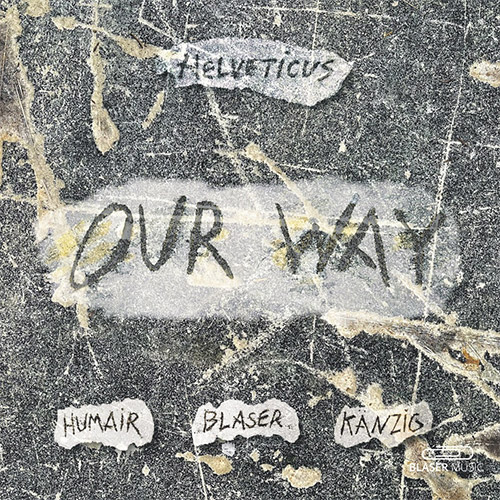







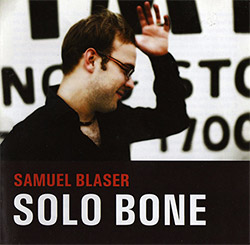

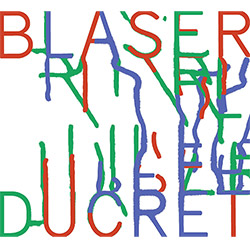
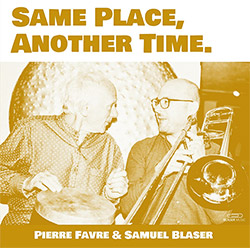

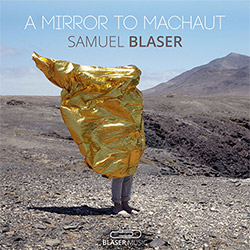
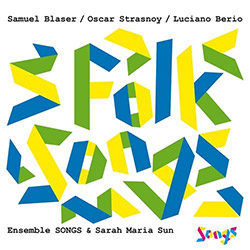
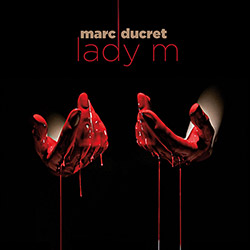


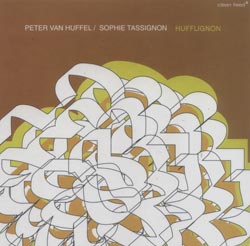
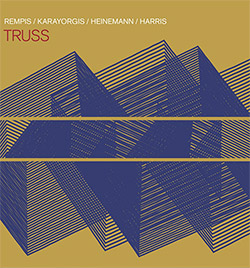

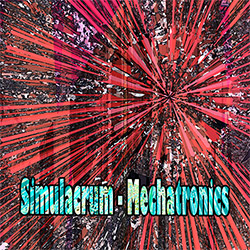
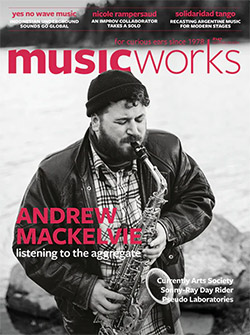

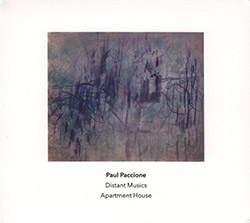
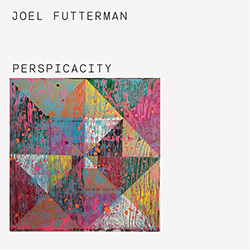





![BlueRing Improvisers: Materia [2 CDs]](https://www.teuthida.com/productImages/misc4/36513.jpg)








![Wheelhouse (Rempis / Adasiewicz / McBride): House And Home [VINYL]](https://www.teuthida.com/productImages/misc4/36462.jpg)
![+DOG+: The Light Of Our Lives [2 CDs]](https://www.teuthida.com/productImages/misc4/36009.jpg)


![Parker, Evan / Jean-Marc Foussat: Insolence [VINYL]](https://www.teuthida.com/productImages/misc4/36398.jpg)










![Deupree, Jerome / Sylvie Courvoisier / Lester St. Louis / Joe Morris: Canyon [2 CDs]](https://www.teuthida.com/productImages/misc4/36404.jpg)



![Eventless Plot | Haarvol: The Subliminal Paths [CASSETTE + DOWNLOAD]](https://www.teuthida.com/productImages/misc4/36232.jpg)










![Eventless Plot | Francesco Covarino: Methexis [CASSETTE + DOWNLOAD]](https://www.teuthida.com/productImages/misc4/36231.jpg)



![Das B (Mazen Kerbaj / Mike Majkowski / Magda Mayas / Tony Buck): Love [VINYL]](https://www.teuthida.com/productImages/misc4/36329.jpg)


![Eternities: Rides Again [CASSETTE]](https://www.teuthida.com/productImages/misc4/36247.jpg)
![Lopez, Francisco: Untitled (2021-2022) [2 CDs]](https://www.teuthida.com/productImages/misc4/36438.jpg)






![Money : Money 2 [2 CDs]](https://www.teuthida.com/productImages/misc4/35894.jpg)




![Klinga, Erik: Elusive Shimmer [VINYL]](https://www.teuthida.com/productImages/misc4/36258.jpg)
![CHANGES TO blind (Phil Zampino): Volume 9 - I Wave on a Fine Vile Mist [CD + DOWNLOAD]](https://www.teuthida.com/productImages/misc4/36061.jpg)

![Wallmart / Rubbish: Asset Protection [split CD]](https://www.teuthida.com/productImages/misc4/35900.jpg)


![+Dog+: The Family Music Book Vol. 5 [2 CDs]](https://www.teuthida.com/productImages/misc4/35897.jpg)
![Kuvveti, Deli : Kuslar Soyledi [CASSETTE w/ DOWNLOAD]](https://www.teuthida.com/productImages/misc4/36107.jpg)

![Brown, Dan / Dan Reynolds: Live At The Grange Hall [unauthorized][CASSETTE]](https://www.teuthida.com/productImages/misc4/36245.jpg)








![Palestine, Charlemagne / Seppe Gebruers: Beyondddddd The Notessssss [VINYL]](https://www.teuthida.com/productImages/misc4/36206.jpg)
![Palestine, Charlemagne / Seppe Gebruers: Beyondddddd The Notessssss [NEON GREEN VINYL]](https://www.teuthida.com/productImages/misc4/36207.jpg)

![Laubrock, Ingrid: Purposing The Air [2 CDs]](https://www.teuthida.com/productImages/misc4/35639.jpg)

![Yoko, Ono / The Great Learning Orchestra: Selected Recordings From Grapefruit [2 CDs]](https://www.teuthida.com/productImages/misc4/35841.jpg)









![Zorn, John / JACK Quartet: The Complete String Quartets [2 CDs]](https://www.teuthida.com/productImages/misc4/35609.jpg)

![Lonsdale, Eden: Dawnings [2 CDs]](https://www.teuthida.com/productImages/misc4/35480.jpg)



![Sorry For Laughing (G. Whitlow / M. Bates / Dave-Id / E. Ka-Spel): Rain Flowers [2 CDS]](https://www.teuthida.com/productImages/misc4/35985.jpg)

![Rolando, Tommaso / Andy Moor : Biscotti [CASSETTE w/ DOWNLOADS]](https://www.teuthida.com/productImages/misc4/36106.jpg)


![Electric Bird Noise / Derek Roddy: 8-10-22 [CD EP]](https://www.teuthida.com/productImages/misc4/35970.jpg)








![Elephant9 : Mythical River [VINYL]](https://www.teuthida.com/productImages/misc4/34624.jpg)



![Elephant9 with Terje Rypdal: Catching Fire [VINYL 2 LPs]](https://www.teuthida.com/productImages/misc4/35355.jpg)
![Deerlady (Obomsawin, Mali / Magdalena Abrego): Greatest Hits [VINYL]](https://www.teuthida.com/productImages/misc4/34876.jpg)







![Surplus 1980: Illusion of Consistency [CD]](https://www.teuthida.com/productImages/misc4/35069.jpg)
![Staiano, Moe: Away Towards the Light [VINYL + DOWNLOAD]](https://www.teuthida.com/productImages/misc4/35037.jpg)
![Coley, Byron: Dating Tips for Touring Bands [VINYL]](https://www.teuthida.com/productImages/misc4/17906.jpg)

![Lost Kisses: My Life is Sad & Funny [DVD]](https://www.teuthida.com/productImages/misc4/lostKissesDVD.jpg)